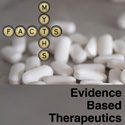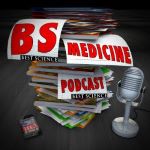In episode 386, James and Mike talk about the latest low fat low carb weight loss study and then put it all into context of the more global evidence for low carbs vs low fats. The bottom line is, the evidence is even lower than the carbohydrates in a ketogenic diet – which is pretty low – or in other words nobody can really say what is the best diet – except maybe the one to which you will adhere.
Show notes
1) Effect of Low-Fat vs Low-Carbohydrate Diet on 12-Month Weight Loss in Overweight Adults and the Association With Genotype Pattern or Insulin Secretion: The DIETFITS Randomized Clinical Trial
JAMA. 2018 Feb 20;319(7):667-679
2) Effects of low-carbohydrate diets v. low-fat diets on body weight and cardiovascular risk factors: a meta-analysis of randomised controlled trials
Br J Nutr. 2016 Feb 14;115(3):466-79
3) Low carbohydrate-high protein diet and incidence of cardiovascular diseases in Swedish women: prospective cohort study
J Intern Med. 2007 Apr;261(4):366-74
4) Comparison of weight-loss diets with different compositions of fat, protein, and carbohydrates
N Engl J Med. 2009 Feb 26;360(9):859-73



